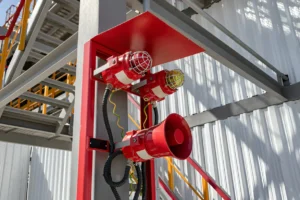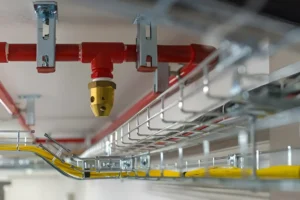In any environment—whether commercial, industrial, or residential—early detection of fire and gas hazards is critical. It’s the first line of defense that can prevent injuries, protect property, and even save lives. Yet, many facilities still overlook the importance of installing a comprehensive fire and gas detection system tailored to their specific needs.
In this article, we’ll explore the importance of these systems, how they work, and why your building shouldn’t go without one.
🔥 What Is a Fire and Gas Detection System?
A fire and gas detection system is designed to detect early signs of combustion or the presence of harmful gases. These systems use sensors and detectors to identify hazards and trigger alarms, automatic suppression, or communication protocols.
These systems are especially important in high-risk environments such as:
- Oil & gas refineries
- Chemical plants
- Power generation facilities
- Commercial kitchens
- Warehouses with flammable materials
🚨 Why Is Fire and Gas Detection So Important?
- Early Detection Saves Lives
The sooner a threat is detected, the more time people have to evacuate and emergency personnel have to respond. Fire and gas detection systems give you that critical time window.
- Minimizes Property Damage
Fast detection reduces the spread of fire and gas, preventing structural damage, equipment loss, and costly downtime.
- Regulatory Compliance
Many jurisdictions require fire and gas detection systems as part of building codes and safety regulations. Compliance with standards like NFPA, IEC, or EN helps avoid legal penalties and ensures insurance coverage.
- Automated Safety Response
Modern systems can automatically activate alarms, ventilation systems, sprinklers, or water mist systems, ensuring a swift, coordinated response to threats—often before human intervention is possible.
- Integration With Other Safety Systems
When integrated with fire alarms, CCTV, intercoms, and public address systems, fire and gas detection enhances overall building safety and helps manage emergencies more efficiently.








